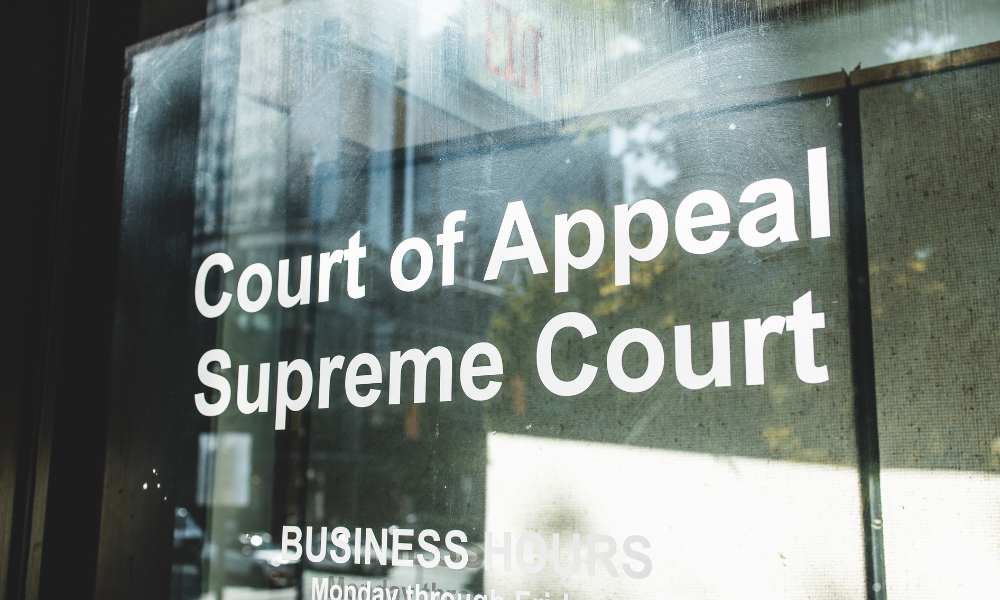
Ruling says judge wrongly reduced non-pecuniary damages based on issue parties did not raise

The British Columbia Court of Appeal partly allowed an appeal upon agreeing with an injured man’s argument that a judge erred by decreasing his non-pecuniary damages on the ground that he failed to mitigate his psychological injuries.
The case of McPhail v. Ross, 2025 BCCA 139, arose from a motor vehicle accident in Vancouver in December 2012. The appellant was driving on West 4th Avenue when the respondent ran a stop sign, pulled out from a side street, and drove into the appellant’s path. Though the appellant swerved, the front and right side of his vehicle struck the respondent’s car.
That day, the appellant drove home and called no ambulance. Two days later, he visited his family doctor. He later alleged that the accident was devastating and sued for millions of dollars in damages for lost earning capacity. The respondent admitted to his negligence in causing the crash.
In January 2019, a trial judge of the Supreme Court of British Columbia ruled that the appellant failed to prove that he lost income or needed future care due to the car accident. However, the trial judge awarded the appellant $35,000 in non-pecuniary damages for minor physical injuries that had healed by the time of trial.
In March 2022, the BC Court of Appeal held that the initial trial judge overlooked expert evidence supporting that the accident caused lingering psychological symptoms. The appeal court remitted the case to the trial court to reconsider damages.
In July 2023, the remittal judge of the BC Supreme Court determined that the appellant failed to mitigate his symptoms as he did not seek psychological treatment after his general physician diagnosed him with a trauma disorder immediately after the accident. The remittal judge denied the appellant’s claim for loss of earning capacity and his new claim for loss of marriageability.
The remittal judge increased the non-pecuniary damages to $50,000 and awarded $3,600 for future counselling sessions. The remittal judge noted that the appellant’s failure to mitigate his psychological injuries limited the award for non-pecuniary damages.
On appeal, the appellant claimed errors by the remittal judge, the trial judge, and the appeal court. He alleged a reasonable apprehension of bias and procedural unfairness in the remittal hearing. He also challenged the remittal judge’s conclusion that he failed to mitigate his psychological injuries.
The Court of Appeal for British Columbia reassessed the award for non-pecuniary damages and increased these damages to $60,000. However, the appeal court dismissed the appellant’s application to file fresh or new evidence.
First, the appeal court highlighted the principle of finality. The appeal court saw no error in the remittal judge’s refusal to reconsider the trial judge’s original factual findings and to consider loss of marriageability, a type of damages the appellant was raising for the first time.
The appeal court noted that the March 2022 appeal ruling remitted the matter to the trial court to address a limited issue and not to hold a full re-trial or accept arguments for new categories of damages.
Second, the appeal court upheld the remittal judge’s denial of the appellant’s claims for damages for loss of earning capacity and marriageability based on the appellant’s failure to offer independent collateral evidence. The appeal court noted that the trial judge found that the appellant’s testimony lacked reliability and credibility.
Third, the appeal court disagreed with the appellant’s grounds of appeal based on procedural issues. The appeal court rejected the appellant’s argument that the remittal judge failed to provide a procedurally fair hearing or a proper opportunity to present new or fresh evidence. The appeal court also saw no reasonable apprehension of bias.
Next, the appeal court saw an error in the remittal judge’s conclusion that the appellant failed to mitigate his damages. The appeal court found that the remittal judge should not have addressed this question if the respondent had not raised it as an argument. The appeal court said that the remittal judge should have, at a minimum, given the parties a chance to address this issue.
Lastly, the appeal court accepted the appellant’s argument that his doctor did not make recommendations about treating his psychological symptoms. Thus, the appeal court concluded that the remittal judge wrongly found that the appellant’s mental health condition would have become asymptomatic by the time of trial if the appellant had followed his doctor’s recommendation in 2012.